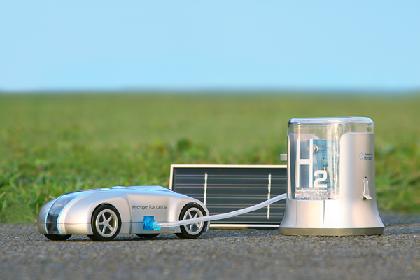Railways get clearance from ISRO for Internet surfing in trains without using data card
The Railways have got the much-awaited clearance from space agency ISRO for using the satellite for surfing the Internet in trains without using data card. A senior Railway Ministry official said, the Indian Space Research Organisation, ISRO has given the clearance for using the frequency from KU band for using the satellite for Internet. It will be for the first time that Internet will be operational in moving trains through satellite.
Though Railways had proposed two years back to provide Internet in trains, the project could not take off for the want of ISRO clearance. As per the proposal, three rakes of Howrah Rajdhani will be uplinked with satellite for facilitating Internet in coaches on a pilot basis. Since it is a pilot project, the Internet service will not be charged from the passengers.
Railways have sanctioned 6.30 crore rupees for providing Internet facility in Howrah Rajdhani. Now custom-made antenna will be installed on the locomotives of the train and coaches will be linked through Wi-Fi connectivity.
To make the Internet operational, the passenger will get a password in his mobile phone after dialling a number given by the TTE.
GROWING FOREST COVER IN UTTAR PRADESH
| ||
 The history of exploitation and destruction of forests in India goes back to the British period when the forests wealth were consumed for commercial gains. The trend continued even after independence and the forests were used not for imperative economic growth but for other various reasons. The denudation of forest land, however, had now slowed down in recent years despite human and commercial pressures due to efforts made by various agencies. The Himalayan region is the most threatened area in India. The growing population, one of the main factors for deforestation, increases the need of land for more food production to feed the growing number of people causing environmental degradation. The history of exploitation and destruction of forests in India goes back to the British period when the forests wealth were consumed for commercial gains. The trend continued even after independence and the forests were used not for imperative economic growth but for other various reasons. The denudation of forest land, however, had now slowed down in recent years despite human and commercial pressures due to efforts made by various agencies. The Himalayan region is the most threatened area in India. The growing population, one of the main factors for deforestation, increases the need of land for more food production to feed the growing number of people causing environmental degradation. After a separate state of Uttarakhand was carved out of Uttar Pradesh, the forest cover of the state had decreased by 40 percent. Uttar Pradesh's forest cover, which stood at 14,127 square km in 2007, has gone up to 14,341 sq km, as per the survey carried out in November 2009. The survey has also recorded a substantial rise in the density of the forest cover, thanks to campaigns launched by department of Social Forestry and Department of Forest. In terms of percentage, this may not appear really great, yet it reflects a positive trend. The green cover in the state has registered marginal increase from 5.86 percent to 5.95 percent of the state's total area. While the national average of green cover is 21 percent. Even though the rise is marginal, it is quite significant considering the fact that green cover is gradually going down in most parts of the country due to immense population pressure. After a separate state of Uttarakhand was carved out of Uttar Pradesh, the forest cover of the state had decreased by 40 percent. Uttar Pradesh's forest cover, which stood at 14,127 square km in 2007, has gone up to 14,341 sq km, as per the survey carried out in November 2009. The survey has also recorded a substantial rise in the density of the forest cover, thanks to campaigns launched by department of Social Forestry and Department of Forest. In terms of percentage, this may not appear really great, yet it reflects a positive trend. The green cover in the state has registered marginal increase from 5.86 percent to 5.95 percent of the state's total area. While the national average of green cover is 21 percent. Even though the rise is marginal, it is quite significant considering the fact that green cover is gradually going down in most parts of the country due to immense population pressure.
Worried by the denudation of vast Himalayan range and elsewhere, the Union Government chalked out an ambitious plan of bringing 33% of its land under green cover. However, there is a lot to be done to achieve this target as the requirement of land for Human Settlement is growing. There is not much wasteland available for residential or Industrial purposes either. However, the Minister for Environment and Forests, Mr. Jairam Ramesh terms the target as 'unrealistic', "...it is not realistic given the population pressure and the pressure for development." Addressing Green Landscape Summit-2011 organised by CII, he said, "The target is unrealistic in a country like India where the population is 1.2 billion and set to become 1.6 billion by 2040. With the population and development pressure in our country, to expect India to suddenly grow a green cover from the present 21% to 33% is totally unrealistic."
The Union Government has recently approved the National Mission for Green Indiato
increase forest cover in the country. This is one of the eight missions under India's National Action Plan on Climate Change.The objective of this Mission is not only to increase the quantity but also the quality of over 10 million hectares of forest area. It aims to double the afforestation. The increased forest cover will act as a carbon sink to absorb an additional 43 million tonnes of green house gases every year. This will go a long way in addressing the impact of climate change. The Mission is not just limited to increasing plantations, but also focuses on restoring diverse ecosystems.
Deforestation for different purposes, poaching and illegal cutting of trees are the major cause of declining forest cover. Not only it is effecting the climate change, the deforestation has snatched the living of wildlife. Many cases of Panther and other wildlife wandering into human habitat have come to light during past years. Last year three panthers strayed from Pilibhit, Sohgibarwa (Mahrajganj) and Gorakhpur forest areas and threatened human lives. At least three people died and half a dozen other injured including one forest official. Several Neelgai , Deer and wolves have escaped from sanctuaries and reserved forests in Terai areas of Uttar Pradesh in recent past.
The ecosystem of the forests is depleting very fast. With food chain broken, the wildlife comes to Human Habitations in search of food. It has become a vicious circle. The climate change is causing depletion of forest resources and depletion of forest resources is causing climate change. With human habitation coming closer to the forests due to population pressure, they are becoming easy prey to wild animals. The population in turn fells more tree and destroy forest vegetation for residential purposes.
Recently, the government of India, state governments and judiciary have come up with the plan of saving forests. While the National Mission for Green India aims at increasing the forest cover to 33 percent, the judiciary has given land rights to the tribes living in forests.
These tribes like "Van-Tangia" in eastern Uttar Pradesh live in the forest and earn their living from selling the by-products of forest like leaves, bark and dry grass. It is noteworthy that they never fell a tree for fuel wood or otherwise rather they strive for saving trees as they pray the trees like God. If promoted, they can become saviour of forest and help in social forestry programme. Vast range of natural forest occupies the Himalayan foothills of Uttar Pradesh. These need to be protected if one needs to slow down the effects of Climate change.
Uttar Pradesh has a long way to cover if it is to reach somewhere near the national average of present 21 percent greenery. The increase in forest cover have been recorded in the districts of Hardoi, Kheri, Pithoragarh, Saharanpur which is on account of the plantations taken 4 to 5 years earlier and also due to effective protection measures. Mass public awareness is needed to increase the forest cover and to save wildlife.
|
Extending Laptop Battery Life - Save Power and The Planet
Posted by
harsh_tch
Wednesday, February 10, 2010
Save Power and The Panet - Power Management Reducing Your Carbon Footprint
Buying Tips
The first step is to look for a model with a good battery life. Many manufacturers will make extravagant claims, but these are often based on ‘perfect’ conditions which are difficult to replicate in real-world use. Before choosing a model look for reviews such as those on BrightHub and in computer magazines, as these will often give a much more realistic view of how much battery life you can expect.
A model with solid-state drive may consume considerably less power. This is because these drives don’t have any moving parts: unlike a traditional hard drive, there’s no need for the drives to spin, or for a read/write head to move across the disk. However, at the moment, these drives are more expensive and so you’ll usually only find them in high-end models.
Laptop screens usually work with a light-source shining through the screen. Some modern laptops use a light-emitting diode (LED) to provide this light rather than the traditional fluorescent lamp. These LED models are much less power-hungry.
Models with a silver-zinc battery can run up to 50% longer than the normal lithium-ion batteries. They should also work for longer periods of time before the battery life starts to degrade. However, as with solid-state drives, these models tend to be more expensive so you may have to consider the trade-off in price.
If you want to be really green, it’s worth looking at the Voltaic range of laptop bags and backpacks, which not only carries your laptop, but charges a special battery through solar power! The company claims a day of direct sunlight will be enough to give one full charge to your battery. You can also buy a solar laptop battery charger.
Usage Tips To Save Battery Power
You may well find you can reduce the brightness on your laptop monitor without affecting performance. That’s because most machines are set very brightly in case they need to be displayed in a store (where every screen is competing for attention). If you can reduce brightness you’ll likely save a lot of power.
It’s best to avoid using the CD/DVD drive more than necessary while running from battery power as the spinning of the disc soaks up plenty of juice. Your best bet, within copyright laws, is to copy your content to your hard drive before travelling.
Avoid charging any USB devices through your laptop unless it is running on mains power. In fact it’s best to remove any USB devices which you aren’t actively using as these continue to draw power when ‘idle’.
Turn off your wireless internet function when you don’t need to be online. If you leave it on, it will continue searching for a connection (even in vain) and making your computer work harder.
It’s best to avoid using the CD/DVD drive more than necessary while running from battery power as the spinning of the disc soaks up plenty of juice. Your best bet, within copyright laws, is to copy your content to your hard drive before travelling.
Avoid charging any USB devices through your laptop unless it is running on mains power. In fact it’s best to remove any USB devices which you aren’t actively using as these continue to draw power when ‘idle’.
Turn off your wireless internet function when you don’t need to be online. If you leave it on, it will continue searching for a connection (even in vain) and making your computer work harder.
| tep 1: Look for your rechargeables | |
If it's rechargeable, it's recyclable. Look for used rechargeable batteries and old cell phones in your home that are dead or not being used any longer. Rechargeable batteries can be found in cordless electronic products that you plug in to get recharged. Use our handy tool to help find them all! your home that are dead or not being used any longer. Rechargeable batteries can be found in cordless electronic products that you plug in to get recharged. Use our handy tool to help find them all! | |
| Step 2: Find a recycling location | |
Find the recycling location nearest you and drop off your used rechargeable batteries and old cell phones. rechargeable batteries and old cell phones. | |
| Step 3: You’re done! |
Onto the Future: Alternative and Renewable Energy Choices

A lens dedicated toward promotion various sources, links and options to alternative energy and green concept solutions. Welcome to this lens and enjoy learning about the green issues that are covered here, along with the new innovations in clean, green technology! Human understanding of the consequences of energy and environmental waste creation and disposal have always tended to lag well behind the release of what is coined "modern progress". In earlier times, it was possible to find evidence of many of the features which characterize the response to contemporary pollution: fatalistic acceptance of pollution as an inevitable consequence of human activities; authorities balking at prevention or control measures; lack of foresight and technical understanding; the problem of allocating responsibility; a preference for short-term local fixes rather than long-term solutions and a failure of individuals or companies to take responsibility for their actions. Attempts to control pollutionare as old as the problem itself but the response has usually been belated and inadequate with a poor record of co-operation and enforcement. The aim of this lens is to educate others about these issues, and come up with proactive solutions to address these challenges in an effort to resolve them.

Reducing Petroleum Use by Using Wheat
Small changes can make huge difference. Consider a plastic storage bin. By using wheat straw-reinforced plastic rather than 100-percent traditional petroleum products, it is estimated that petroleum use will be reduced by approximately 20,000 and CO2 emissions will be reduced by approximately 30,000 pounds per year.
The first application of the natural fiber-based plastic that contains 20-percent wheat straw bio-filler is on the 2010 Ford Flex’s third-row interior storage bins. Ford is already considering using the environmentally-friendly technology in the construction of center-console bins and trays, interior air registers, door trim panel components and armrest liners.
Ford’s sustainable materials portfolio also includes soy-based polyurethane seat cushions, seatbacks and headliners; post-industrial recycled yarns for seat fabrics; and post-consumer recycled resins for underbody systems, such as the new engine cam cover on the 2010 Ford Escape’s 3.0-liter V-6 engine
“Ford continues to explore and open doors for greener materials that positively impact the environment and work well for customers,” said Patrick Berryman, a Ford engineering manager who develops interior trim. “We seized the opportunity to add wheat straw-reinforced plastic as our next sustainable material on the production line, and the storage bin for the Flex was the ideal first application.”
RATE | THIS | POST





































